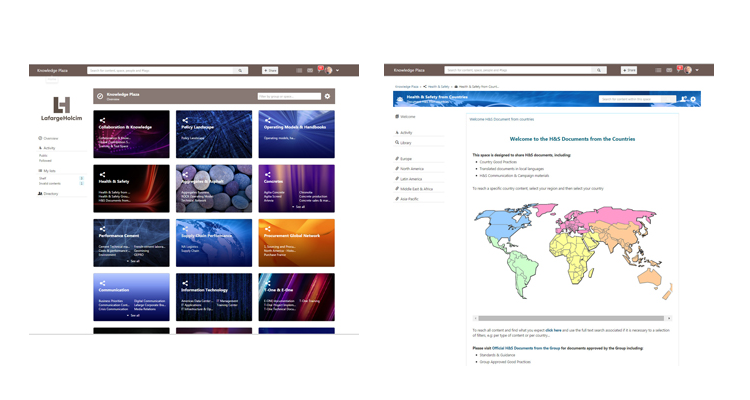
Nowadays, business needs are evolving, and competition is more and more dense, which leads many companies to rethink their communication strategy.
Also, for the past two years, the lack of access to data and communication inefficiency on social networks are becoming real issues. As a result, many companies and communities have left social networks to get their own solution. Hence, the number of community platforms on the market is currently exploding, and more and more innovative solutions are offered.
Today, we delve into the community platform environment. I was able to identify 3 categories of community platforms, which answer to 3 different categories of needs. Each of them has a different purpose.
1. Companies’ internal management (Enterprise)
Because of the high level of competition and the market evolution, companies have to be more reactive. Relying on enterprise community platforms allows to accelerate the internal communication and streamline information and processes.
This approach is mostly inspired by the concept of Enterprise 2.0, coined by Prof. Andrew McAffee in 2006. Nowadays, it is well known that enterprise community platforms are a game changer regarding decision making, communication efficiency, and project management.
With time, the use of enterprise community platforms has been broadened to other fields, such as BPO (Business Process optimization) or knowledge management. A good example is the case of Lafarge, which in 2010 launched its knowledge management platform. The platform has been conceived so as to increase Lafarge’s performance, while sharing best practices between all the collaborators across the world, and keeping the know-how of the organisation flowing.

But enterprise community platforms can also be extended beyond the enterprise world, and allow all the stakeholders: clients, suppliers, partners, etc, to communicate more efficiently together. This approach is especially fruitful for anything related to product or service delivery optimisation, whether it is on time or quality bases.
2. Marketing research & Customer experience (Enterprise)
Community platforms are also widely used by Marketing Departments for two distinct purposes: first, for brand management and product development, and second, for customer experience.
This type of communities are called brand communities.
Brand management and product development:
- “86% of Fortune 500 companies report communities provide insight into customer needs”
- “66% of companies say they turn to brand communities for product development”
reference: Crezeo
Building an engaged brand community can offer a major value, as it is an excellent way for any company to connect with their customers. Marketing departments can then rely on this community of loyal fans to evaluate the response of the market to any innovation, use it as a source of insights into the customer needs, or even identify the best marketing and sales practices. Thanks to such a community, marketers and brand managers can collaborate directly with the customers to perform market research, collect customer feedback, run a A/B tests, or conduct surveys.
Customer experience:
Community platforms can also improve customer experience. Many companies are providing their customers with a community platform to allow them to quickly find answers to their questions, assist each other, share tips, directly ask the brand about a product, etc. It is a kind of customer care that increases customer satisfaction and brings added value to the brand.
This is exactly the area in which Get Satisfaction specializes. This customer community platform provider helps organizations optimize customer experience by providing a support all along the consuming process. They also provide their clients with interesting insights about their user experience and the consuming experience.

3. Online communities
Associations, clubs, and institutions use online community platforms to host their community of like-minded people. Most of the time, online community platforms aim to optimize the collaboration process between members. The goal is to build a connected environment, where members can share information, debate, and make the community “live”.
This type of platforms have no other aim except growing your community, and engage your members. The main focus is centered on the community itself, the collaboration process and the way it benefits the members. Some community platform providers like Minsh and Lithium for instance, are specialised in this type of platforms.